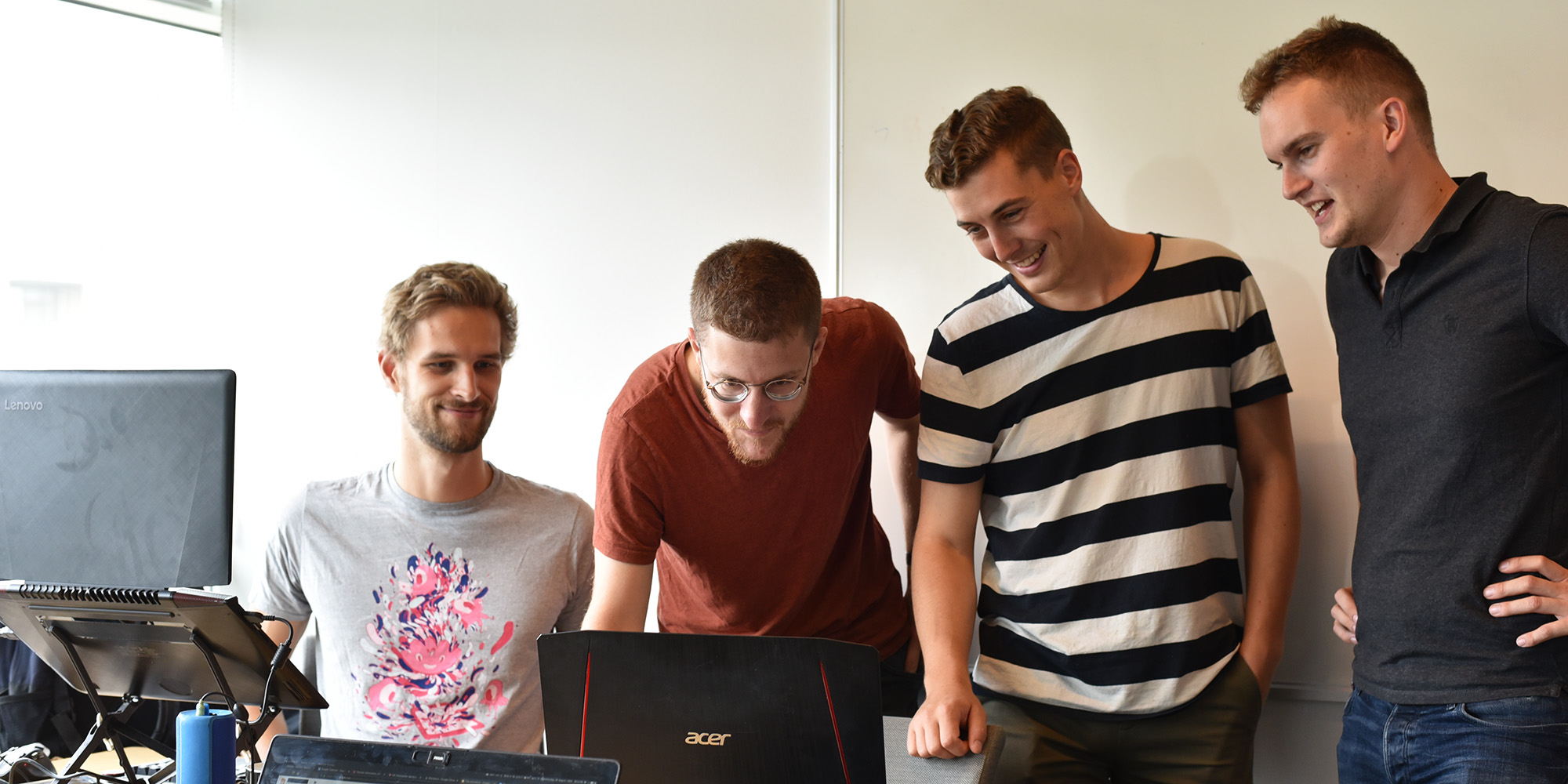Startup incubator helps students create the next Danish IT success
The entrepreneurial spirit is in great shape at the IT University, where students can get help to develop their business ideas through ‘Startup Programme’. So far, more than 40 startups have received help with everything from legal advice to funding.
Entrepreneurshipstartupsinnovationstudent life
Written 3 September, 2018 08:14 by Vibeke Arildsen
In an office on ITU's fifth floor, four young men are discussing over their laptops. What should the logo look like? The investor pitch is due today, and a quick decision must be made. Just one of countless decisions in the early days of running a startup.
Their company Sidetracked is just a couple of months old and their prototype – a 3D animation tool for Virtual Reality – was developed during their thesis project from ITU's Games programme. Upon graduation, their supervisor encouraged them to convert their concept into a business idea with help from ITU's Startup Programme.
"We were well aware that there were lots of things we didn’t know about starting a business – all the bureaucratic and legal stuff, what it takes to get funding and how to register your business. We have received a lot of support with these things," says co-founder Mathias Dam Arvanaghi.
Three steps to developing a company
Sidetracked is one of 40 ITU startups which over the past two years has helped develop the business through Startup Programme. Students at ITU need only a good idea for a tech startup to apply for admission.
"We work with students to ensure that their business ideas have potential, and the best way to do that is to split the process up into different steps," says Vlad Gidea, Manager of Startup Programme.
At the first step, students can get help to test their idea, investigate how potential customers receive it, and assemble the right team.
Companies with high potential move on to the second step, where they gain access an investment of between DKK 100,000 and 300,000 from Startup Programme as well as free legal and accounting assistance through the programme's partners.
"When we help students with the nitty-gritty part, they have more time to focus on developing their product," says Vlad Gidea.
The third step is to prepare the startups to leave the nest and find their place in the Copenhagen startup scene as well as helping companies land bigger investments. ITU startup Limelight Music recently managed to get DKK 1.75 million from Capnova.
Thesis projects with business potential
Startup Programme has invested in several startups based on students’ thesis projects, and Vlad Gidea sees an enormous potential in these.

Sidetracked is one of the promising ITU startups that began as a thesis project.
"Startups deriving from thesis projects often have both a technical solution and a solid academic foundation. Being able to document the value of the product is a big advance when talking to potential investors," he says.
He encourages ITU students with good business ideas to apply for admission.
"Sometimes we get some crazy and creative creative ideas, but even those can prove to be valuable. For instance, a student presented the idea of a Facebook for cats. This idea developed into an app where pet owners can find caretakers for their pets," says Vlad Gidea.
Vibeke Arildsen, Press Officer, phone 2555 0447, email viar@itu.dk